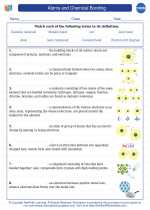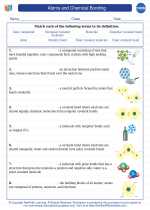Plants
Plants are essential for life on Earth as they play a crucial role in providing oxygen, food, and habitat for many organisms. They are also important in the carbon cycle and help maintain the balance of gases in the atmosphere. Understanding the basic concepts of plants is important for a comprehensive understanding of biology and ecology.
Plant Structure
Plants have a hierarchical organization, starting from the cellular level and progressing to tissues, organs, and finally the whole plant. The basic structure of a plant cell includes the cell wall, cell membrane, cytoplasm, and organelles such as chloroplasts and vacuoles.
Photosynthesis
Photosynthesis is the process by which green plants, algae, and some bacteria convert light energy into chemical energy stored in glucose. This process occurs in the chloroplasts of plant cells and involves the use of carbon dioxide, water, and sunlight to produce glucose and oxygen as a byproduct. The equation for photosynthesis is:
6CO2 + 6H2O + light energy → C6H12O6 + 6O2
Plant Reproduction
Plants can reproduce sexually through the formation of seeds or asexually through methods such as vegetative propagation. Sexual reproduction involves the fusion of male and female gametes, while asexual reproduction involves the growth of new plants from vegetative parts such as roots, stems, or leaves.
Plant Hormones
Plants produce hormones that regulate various aspects of growth and development. These hormones include auxins, gibberellins, cytokinins, abscisic acid, and ethylene, each with specific functions in processes such as cell elongation, seed germination, and fruit ripening.
Plant Adaptations
Plants have evolved various adaptations to survive in different environments. These include structural adaptations such as the presence of thorns or waxy cuticles, physiological adaptations such as C4 and CAM photosynthesis in arid environments, and behavioral adaptations such as the opening and closing of stomata to regulate water loss.
Plant Ecology
Plants interact with the environment and other organisms in complex ways, forming the basis of ecosystems. Understanding plant ecology is crucial for understanding topics such as biodiversity, nutrient cycling, and the impact of human activities on natural habitats.
Studying plants is a fascinating and important aspect of biology, providing insights into the interconnectedness of life on Earth and the delicate balance of ecosystems.
[Plants] Related Worksheets and Study Guides:
.◂Chemistry Worksheets and Study Guides High School. Atoms and Chemical Bonding

 Worksheet/Answer key
Worksheet/Answer key
 Worksheet/Answer key
Worksheet/Answer key
 Vocabulary/Answer key
Vocabulary/Answer key
 Vocabulary/Answer key
Vocabulary/Answer key
